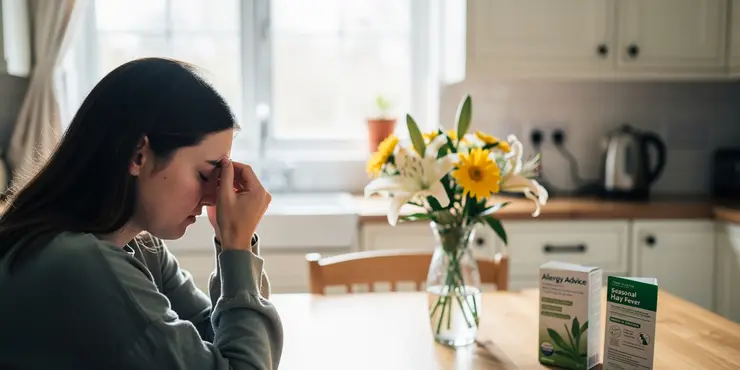
Find Help
More Items From Ergsy search
-
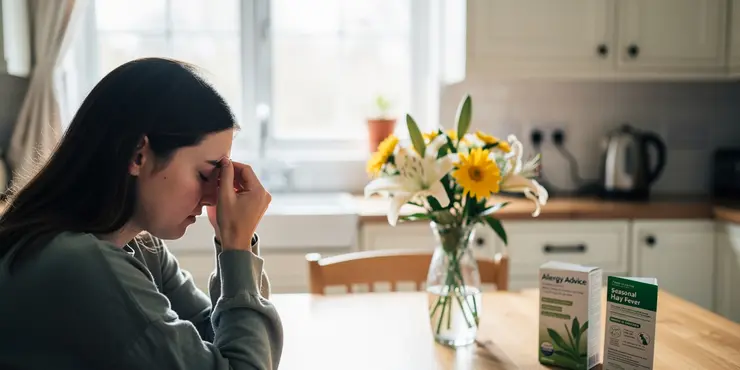
Dealing with Seasonal Allergies
Relevance: 100%
-
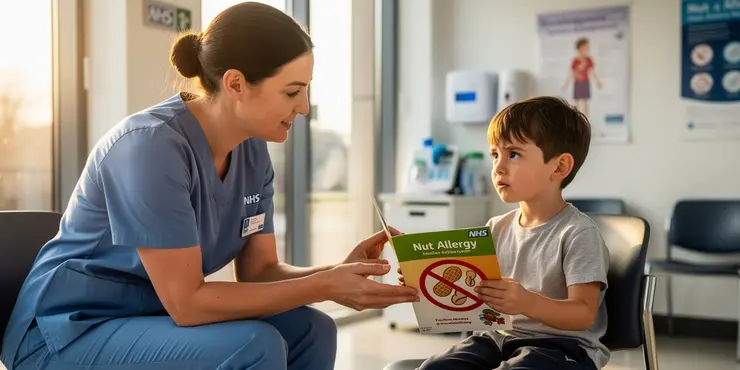
What are Nut Allergies?
Relevance: 52%
-
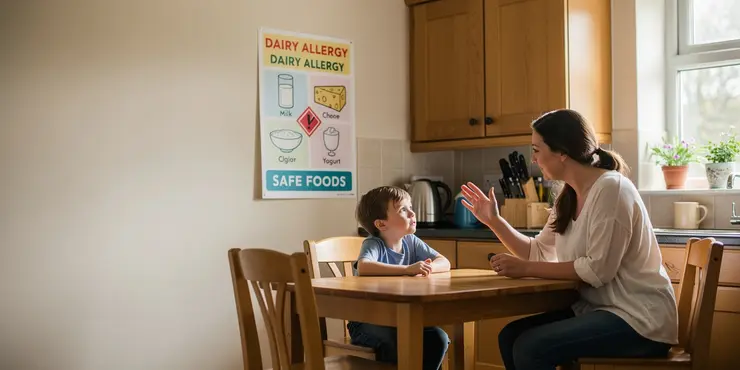
What are Dairy Allergies?
Relevance: 51%
-
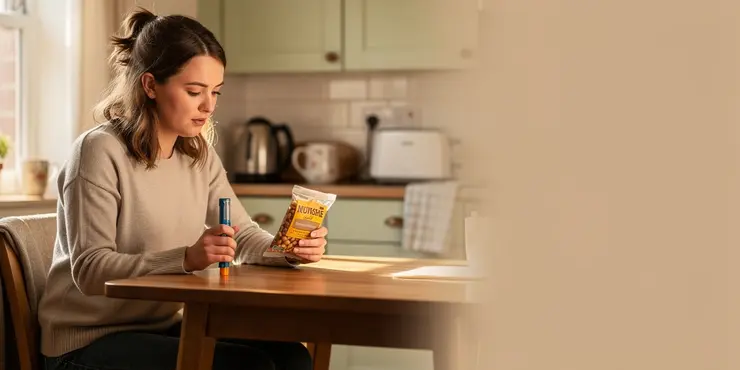
Is there a cure for nut allergies?
Relevance: 51%
-

Can nut allergies be outgrown?
Relevance: 50%
-
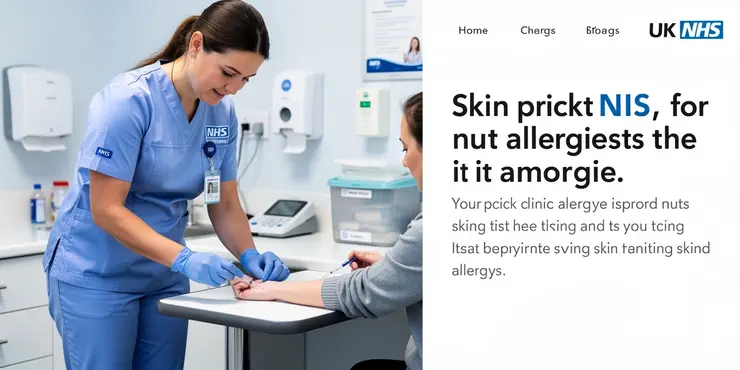
How is a nut allergy diagnosed?
Relevance: 49%
-
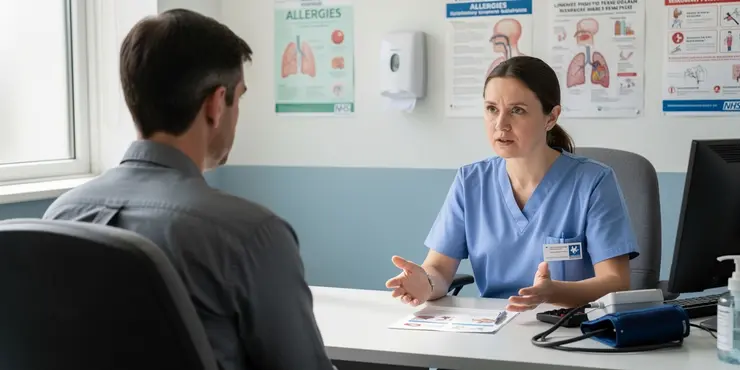
What are the symptoms of a nut allergy?
Relevance: 48%
-
Are there seasonal jobs with the National Trust?
Relevance: 48%
-

How can nut allergies be managed?
Relevance: 47%
-

Is flu season going to be bad in 2026?
Relevance: 46%
-

What types of nuts can cause allergies?
Relevance: 46%
-

Can nut allergies develop later in life?
Relevance: 46%
-

What is the difference between a nut allergy and intolerance?
Relevance: 45%
-
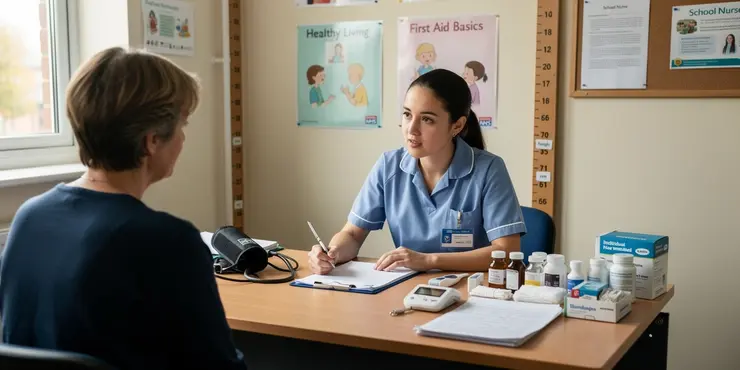
How are food allergies managed in UK schools?
Relevance: 45%
-
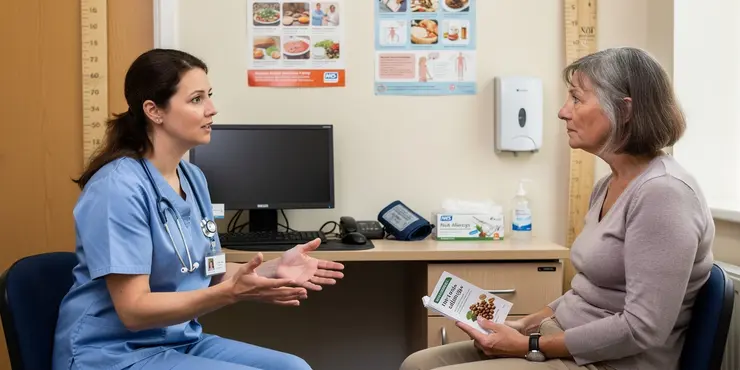
Are nut oils safe for people with nut allergies?
Relevance: 45%
-

Can I get the COVID jab if I have allergies?
Relevance: 45%
-

How common is Seasonal Affective Disorder?
Relevance: 44%
-

What should I do if I think I have a nut allergy?
Relevance: 44%
-
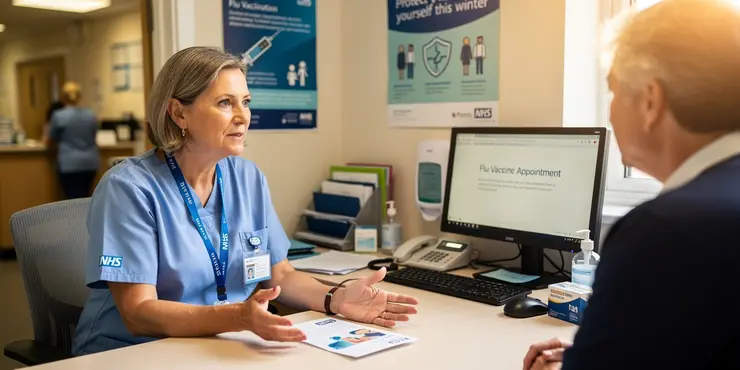
Will climate change affect the 2026 flu season?
Relevance: 44%
-
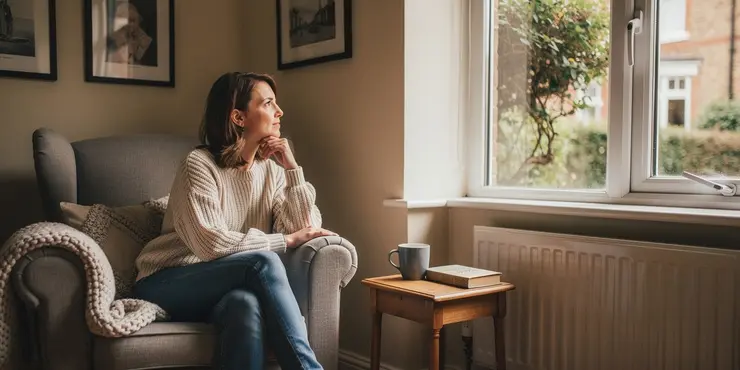
What is Seasonal Affective Disorder (SAD)?
Relevance: 43%
-
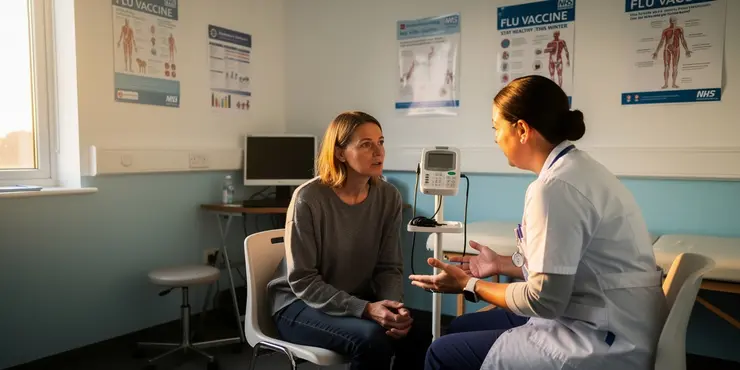
When does the H3N2 flu season typically occur?
Relevance: 43%
-
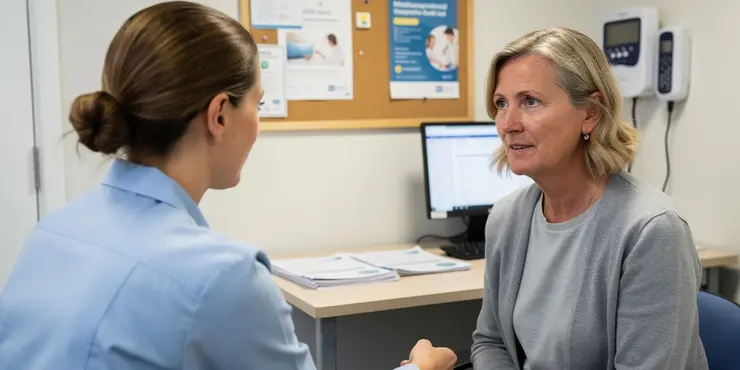
What is seasonal affective disorder - or SAD?
Relevance: 42%
-
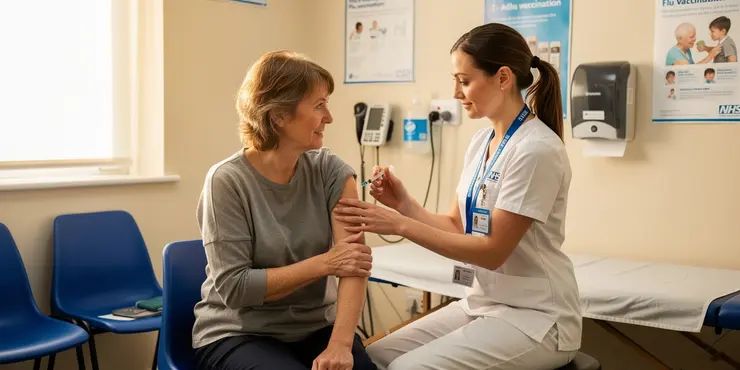
What factors determine if the flu season will be bad in 2026?
Relevance: 42%
-
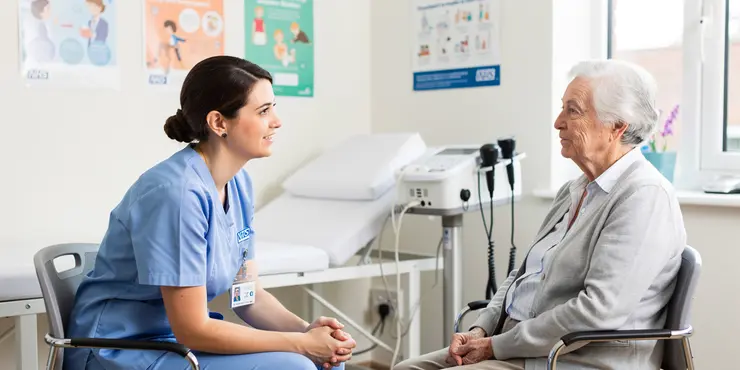
Understanding Seasonal Flu: Prevention and Treatment
Relevance: 42%
-
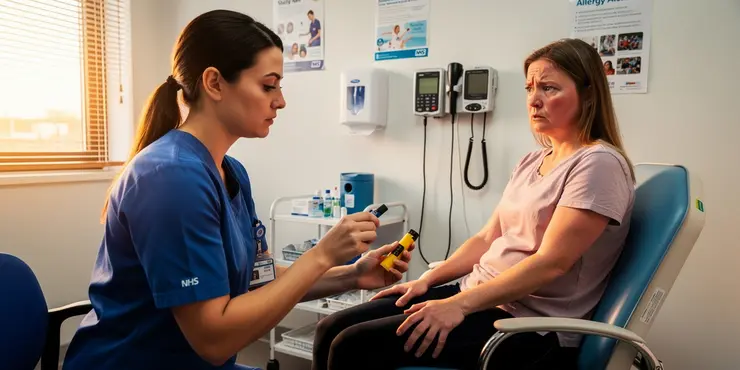
Is epinephrine the only treatment for severe nut allergy reactions?
Relevance: 41%
-
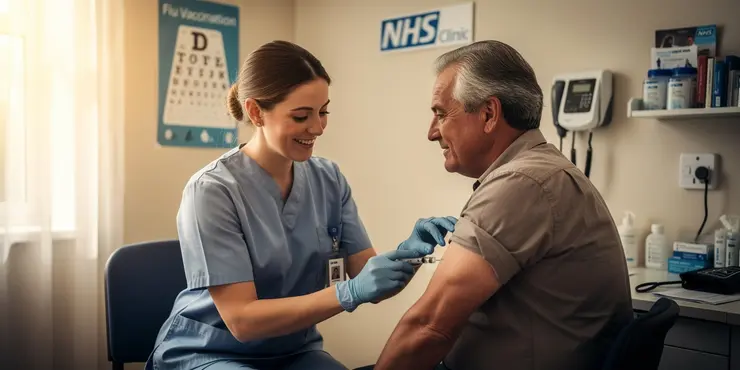
What if I have an egg allergy, can I still get the flu vaccine?
Relevance: 41%
-
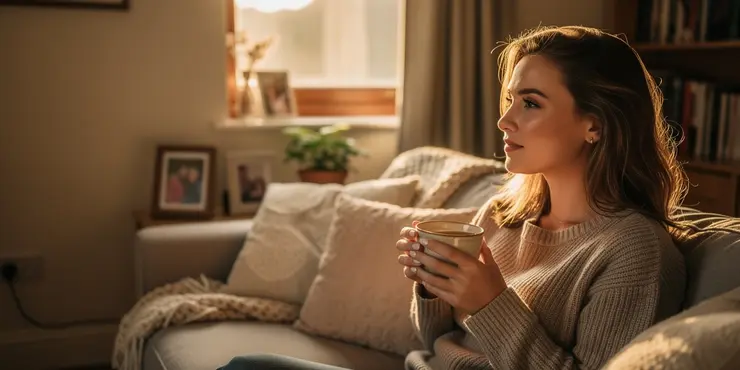
What is Seasonal Affective Disorder? (SAD)
Relevance: 41%
-

Can patients with drug allergies still take heart disease medications?
Relevance: 41%
-
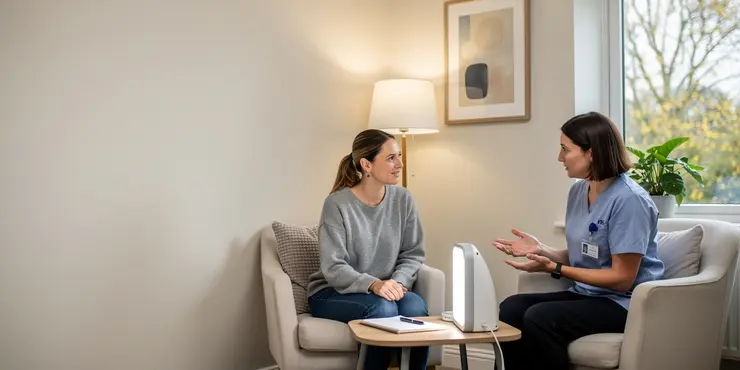
Strategies for Managing Seasonal Affective Disorder
Relevance: 40%
-

What should I tell my family and friends about my nut allergy?
Relevance: 39%
-

Why does H3N2 often lead to more severe flu seasons?
Relevance: 39%
-

Is there a season when mosquito-borne diseases are more likely in the UK?
Relevance: 38%
-
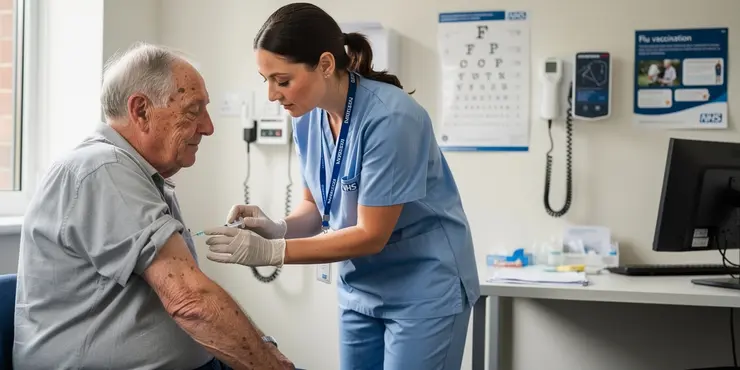
Are certain populations more at risk during the 2026 flu season?
Relevance: 38%
-

Latest Advice on Managing Respiratory Illnesses During Flu Season
Relevance: 37%
-
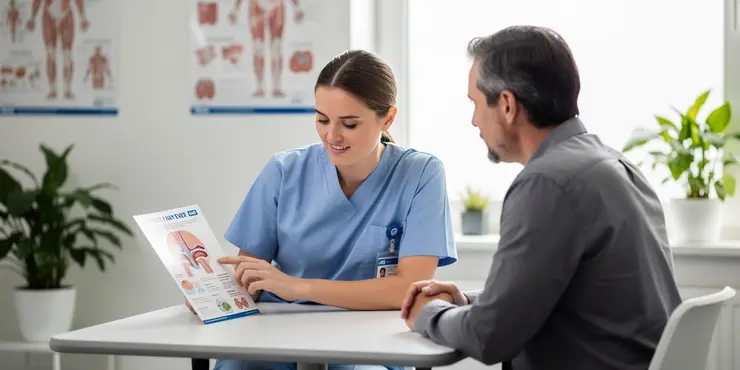
What is a typical hay fever season?
Relevance: 35%
-
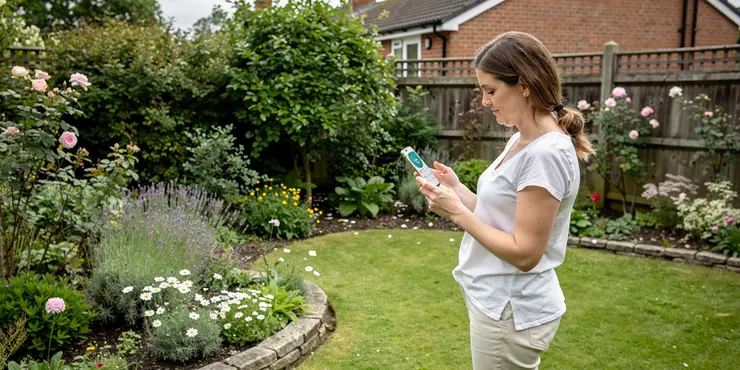
How can I reduce my exposure to pollen?
Relevance: 35%
-
Can sunbed tanning help with Seasonal Affective Disorder (SAD)?
Relevance: 33%
-

Are there any recent treatments or research developments for nut allergies?
Relevance: 33%
-
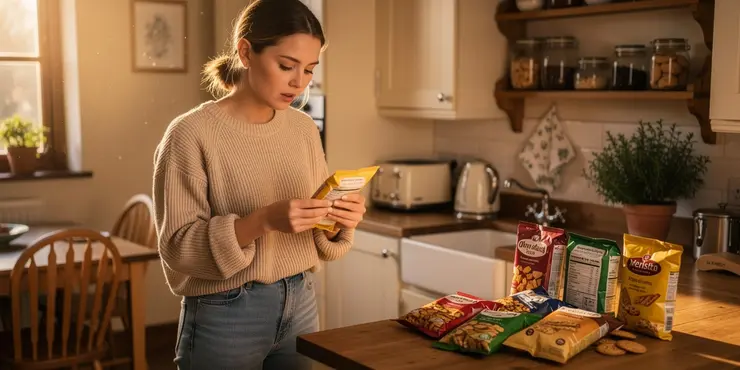
What foods should I avoid if I have a nut allergy?
Relevance: 32%
-
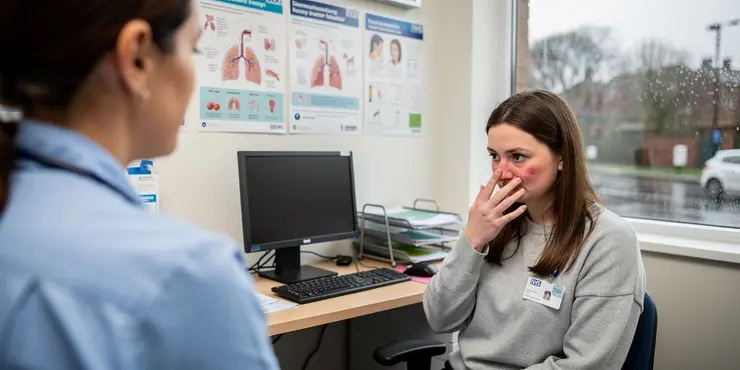
How does climate change affect pollen levels?
Relevance: 31%
Dealing with Seasonal Allergies
Understanding Seasonal Allergies
Seasonal allergies, also known as hay fever or allergic rhinitis, affect millions of people in the United Kingdom. These allergies are typically triggered by pollen from trees, grasses, and weeds, especially during spring and summer. Common symptoms include sneezing, a runny or blocked nose, itchy eyes, and a sore throat. Understanding the causes and triggers of your allergies is the first step in managing them effectively.
Identifying Your Allergy Triggers
Identifying the specific pollen types that trigger your allergies can make management much more effective. The UK pollen season generally starts with tree pollen in early spring, followed by grass pollen in late spring and early summer, and finally weed pollen in late summer to autumn. Keeping a diary of your symptoms can help you recognize patterns and pinpoint which types of pollen affect you the most.
Preventive Measures
Once you’ve identified your allergy triggers, you can take steps to minimize exposure. Keep windows and doors closed during high pollen days, which can often be forecasted through local weather reports. Use pollen filters in your car’s air conditioning system, and wear wraparound sunglasses to keep pollen out of your eyes. Regularly washing your face and hands can also help remove pollen particles.
Medications and Treatments
Several over-the-counter and prescription medications can help relieve allergy symptoms. Antihistamines, decongestants, and nasal corticosteroids are some of the most common treatments. Antihistamines can ease symptoms like sneezing and itching, while decongestants can help relieve a blocked nose. Nasal corticosteroids are effective for reducing inflammation in the nasal passages. Consult with your healthcare provider to determine the most appropriate treatment for your specific needs.
Alternative and Complementary Therapies
Some people find relief through alternative and complementary treatments. Regularly using saline nasal sprays can help flush out allergens from the nasal passages, while natural remedies like butterbur and quercetin have anti-inflammatory properties that may alleviate symptoms. However, it’s important to consult with a healthcare professional before starting any new treatment regimen.
Living with Seasonal Allergies
While living with seasonal allergies can be challenging, proactive management can greatly reduce discomfort. Stay informed about pollen counts, follow preventive measures, and consult with healthcare professionals for tailored advice and treatment options. By taking a comprehensive approach, you can significantly improve your quality of life during allergy season.
Dealing with Seasonal Allergies
Understanding Seasonal Allergies
Seasonal allergies are also called hay fever. They affect many people in the UK. These allergies happen because of pollen from trees, grasses, and weeds. This is common in spring and summer. People with allergies might sneeze, have a runny or blocked nose, itchy eyes, and a sore throat. Knowing what causes your allergies can help you manage them better.
Identifying Your Allergy Triggers
Finding out which pollen types make your allergies worse can help control them. In the UK, tree pollen appears in early spring. Grass pollen comes in late spring and early summer. Weed pollen is around in late summer to autumn. Keeping a diary of how you feel can help you find patterns and see which pollens bother you the most.
Preventive Measures
After you know what triggers your allergies, you can take steps to avoid them. Keep windows and doors shut when pollen levels are high. You can check pollen forecasts in weather reports. Use pollen filters in your car's air conditioning. Wear sunglasses to stop pollen from getting into your eyes. Wash your face and hands often to remove pollen.
Medications and Treatments
There are medicines that can help with allergy symptoms. Antihistamines help with sneezing and itching. Decongestants can help with a blocked nose. Nasal sprays called corticosteroids reduce swelling in the nose. Talk to your doctor to find the best treatment for you.
Alternative and Complementary Therapies
Some people try different therapies for relief. Saline nasal sprays can wash out allergens from your nose. Remedies like butterbur and quercetin might help with swelling. But, always talk to your doctor before trying new treatments.
Living with Seasonal Allergies
Seasonal allergies can be hard, but good management makes it easier. Stay updated on pollen counts, follow prevention tips, and talk to healthcare professionals for advice and treatments. Doing these things can help you feel better during allergy season.
Frequently Asked Questions
What are seasonal allergies?
Seasonal allergies, also known as hay fever or allergic rhinitis, occur during certain times of the year when allergens such as pollen from trees, grasses, and weeds are in the air.
What are the common symptoms of seasonal allergies?
Common symptoms include sneezing, runny or stuffy nose, itchy eyes, nose, or throat, watery eyes, and coughing.
When do seasonal allergies typically occur in the UK?
In the UK, tree pollen season typically starts in late March to early May, grass pollen season from May to July, and weed pollen season from late June to September.
How can I differentiate between a cold and seasonal allergies?
Colds may have symptoms like fever and body aches, which are not typical for seasonal allergies. Allergies often cause itchy eyes, which are rare in colds.
What medications are available for treating seasonal allergies?
Common medications include antihistamines, decongestants, nasal corticosteroids, and leukotriene inhibitors. Some are available over-the-counter, while others require a prescription.
Are there any natural remedies for seasonal allergies?
Some natural remedies include using a saline nasal spray, drinking plenty of fluids, using a humidifier, and trying local honey.
Can diet affect seasonal allergies?
Some people may find relief from certain foods like fruits rich in vitamin C and omega-3 fatty acids, which have anti-inflammatory properties. However, results can vary by individual.
Is it safe to exercise outdoors during allergy season?
It is generally safe, but try to exercise when pollen counts are lower, such as early morning or after rain. Consider indoor workouts if your symptoms are severe.
How can I reduce indoor allergen exposure?
Keep windows closed during high pollen times, use air purifiers, clean regularly, and wash bedding in hot water. Also consider using hypoallergenic covers for pillows and mattresses.
Can children develop seasonal allergies?
Yes, children can develop seasonal allergies, and their symptoms are similar to adults. Consult a healthcare provider for appropriate treatment for children.
How can wearing a mask help with seasonal allergies?
Wearing a mask can help filter out pollen and other allergens when you are outdoors, reducing the amount that enters your respiratory system.
Are there any lifestyle changes that can help manage seasonal allergies?
Some helpful changes include keeping windows closed, frequently washing clothing and hair, avoiding outdoor activities during high pollen counts, and using allergy-proof bedding.
How can I check the pollen count in my area?
Pollen counts are often reported in weather forecasts and can also be checked online through various websites and apps dedicated to allergy information.
Can pets exacerbate seasonal allergies?
Yes, pets can bring pollen indoors on their fur. Regularly grooming pets and keeping them out of bedrooms can help reduce exposure.
When should I see a doctor for seasonal allergies?
You should see a doctor if your symptoms are severe, persistent, or not relieved by over-the-counter medications, or if you experience side effects from medications.
What are seasonal allergies?
Seasonal allergies happen when plants release pollen. Pollen is a fine powder from flowers, trees, and grass.
Some people sneeze and get itchy eyes from pollen. This happens in spring, summer, or fall.
To feel better, you can:
- Stay inside when pollen levels are high.
- Keep windows closed.
- Take medicine if you need it.
- Wear sunglasses to protect your eyes.
If you need help, talk to a doctor or a nurse.
Seasonal allergies are also called hay fever. They happen at certain times of the year. This is because tiny bits from trees, grass, and weeds are in the air and make people sneeze or have itchy eyes.
What happens when you have seasonal allergies?
Here are some things that might happen:
- You might sneeze a lot.
- Your nose could feel stuffy or runny.
- Your eyes might itch or get watery.
- You might have a scratchy throat.
If reading is hard, try using tools like:
- Audio books to listen to stories.
- Apps that read out loud for you.
Here are signs you might notice:
- You sneeze a lot.
- Your nose might be runny or blocked.
- Your eyes, nose, or throat can feel itchy.
- Your eyes might water.
- You might cough.
When do seasonal allergies usually happen in the UK?
In the UK, tree pollen season starts in late March or early April. Grass pollen season is from May to July. Weed pollen season is from late June to September.
How do I tell if I have a cold or allergies?
When you have a cold, you might get a fever and your body might hurt. These things don't usually happen with allergies. If you have allergies, your eyes might feel itchy. Itchy eyes don't usually happen when you have a cold.
To help understand better, try using pictures or ask someone to explain it with simple words. Listening to the text can also help you if reading is hard.
What medicines can help with allergies at certain times of the year?
Some people sneeze and get itchy eyes at certain times of the year. This is called a seasonal allergy. There are medicines that can help with these allergies.
Here are some medicines that might help:
- Antihistamines: These stop the sneezing and itchy eyes.
- Nasal sprays: These help with stuffy noses.
- Eye drops: These help if your eyes are itchy or watery.
If you think you have allergies, ask a grown-up or a doctor for help. They can tell you which medicine is best for you.
Remember, different people need different medicines. It's important to talk to someone who knows about allergies, like a doctor.
Common medicines for allergies are:
- Antihistamines: These help stop itching and sneezing.
- Decongestants: These help you breathe easier when your nose is stuffy.
- Nasal corticosteroids: These help reduce swelling in your nose.
- Leukotriene inhibitors: These help stop allergies from causing problems.
You can buy some of these medicines in a shop, but for others, you need to see a doctor.
Can nature help with sneezes and itchy eyes?
Do flowers make you sneeze? Do your eyes get itchy in spring?
Nature has some gentle helpers!
- Try honey. It might help you like flowers more.
- Drink lots of water. Water is good for your body!
- Eat fruits and vegetables. They keep you strong.
- Put a wet cloth on your eyes. It can help calm them.
Always ask a grown-up if you want to try something new.
Here are some simple ways to feel better:
- Use a special water spray for your nose.
- Drink lots of water.
- Use a machine that makes the air wet, called a humidifier.
- Try eating honey from where you live.
Can what you eat change how bad allergies are in some seasons?
Some people might feel better when they eat certain foods. Fruits with lots of vitamin C and omega-3 fatty acids can help. These foods can stop swelling and pain. But they don't work the same for everyone.
Is it okay to play outside when allergies are bad?
It's important to know if it is safe to play or exercise outside when lots of pollen and allergens are in the air. Here are some simple tips: - **Check the pollen forecast**: Look online or ask an adult to help you. If the pollen count is high, it might be good to stay inside. - **Wear sunglasses**: These can help keep pollen out of your eyes. - **Shower after playing outside**: This helps to wash off pollen from your skin and hair. - **Maybe wear a hat**: A hat can stop pollen from getting in your hair. - **Talk to a doctor**: If you feel sick or have allergy problems, a doctor can give you advice. By following these ideas, you can stay more comfortable even when allergies are bad!It's usually safe, but it's a good idea to exercise when there is less pollen in the air. This can be early in the morning or after it rains. If you feel very unwell, you can try doing exercises inside.
How can I lower allergens inside the house?
Close your windows when there is a lot of pollen outside. Use air cleaners. Clean your home often. Wash your bed sheets in hot water. You can also use special covers on your pillows and mattresses to help with allergies.
Can kids get seasonal allergies?
Yes, kids can have seasonal allergies. Seasonal allergies happen when plants, like trees and flowers, make pollen. Pollen can make kids sneeze or have itchy eyes.
Here are some tips to help:
- Keep windows closed during pollen season.
- Make sure kids wash their hands and face after playing outside.
- Use tissues to wipe runny noses.
If you think your child has allergies, a doctor can help. They might suggest medicine or other ways to make your child feel better.
Yes, children can get seasonal allergies. Their symptoms are like adults. Talk to a doctor to find the right treatment for children.
How can wearing a mask help with seasonal allergies?
Wearing a mask can help if you have allergies. A mask stops bad things in the air from getting into your nose and mouth. This can stop sneezes, runny nose, and feeling itchy. Try wearing a mask when you go outside. You can also use tissues to blow your nose. If you need help, ask an adult you trust.
Wearing a mask when you go outside can block pollen and other things that make you sneeze and cough. This helps keep them out of your lungs and nose.
Can you change how you live to help with seasonal allergies?
Here are some things that can help:
- Keep your windows shut.
- Wash your clothes and hair often.
- Try not to go outside when there is a lot of pollen.
- Use special bedding that helps with allergies.
How can I check the pollen count where I live?
Pollen is tiny stuff from plants that can make you sneeze.
Here's how you can find out the pollen count:
- Use a website or app to see the pollen count.
- Ask a grown-up to help you find a website.
- Watch the TV weather report. They often say the pollen count.
These can help you understand what the pollen count is:
- Ask someone to read the information with you.
- Use pictures and colors to understand better.
Pollen numbers are often given in weather reports. You can also find this information online on different websites and apps that talk about allergies.
Do pets make allergies worse in certain seasons?
If you have allergies, having a pet might make them feel worse at certain times of the year. Some people sneeze or have itchy eyes because of their pets. This is called having an allergy.
Here are some things you can do to feel better:
- Keep pets out of your bedroom.
- Bathe your pets often.
- Ask an adult for special medicine that can help.
These steps can help you enjoy time with your pet without feeling yucky. If you need more help, talk to a doctor.
Yes, pets can bring pollen into the house on their fur. Brush your pets often and keep them out of the bedroom to help with this problem.
When should I see a doctor for seasonal allergies?
If you have allergies from things like pollen, it can make you sneeze or feel itchy. Sometimes, these problems can get worse. Here is when you should talk to a doctor:
- If you have trouble breathing or feel your chest is tight.
- If your medicine does not help you feel better.
- If your allergies stop you from sleeping or doing things you like.
- If you feel sick or have a fever.
If you are not sure what to do, you can:
- Ask a family member or friend to help you understand.
- Write down how you feel every day; this can help your doctor understand what's wrong.
Go see a doctor if:
- You feel very sick.
- You have been sick for a long time.
- Medicine from the store doesn't make you feel better.
- Medicine makes you feel worse.
If it's hard to read, you can:
- Ask someone to read it with you.
- Use a magnifying glass to make the words bigger.
- Try listening to an audio version if available.
Useful Links
This website offers general information and is not a substitute for professional advice.
Always seek guidance from qualified professionals.
If you have any medical concerns or need urgent help, contact a healthcare professional or emergency services immediately.
Some of this content was generated with AI assistance. We’ve done our best to keep it accurate, helpful, and human-friendly.
- Ergsy carfully checks the information in the videos we provide here.
- Videos shown by Youtube after a video has completed, have NOT been reviewed by ERGSY.
- To view, click the arrow in centre of video.
- Most of the videos you find here will have subtitles and/or closed captions available.
- You may need to turn these on, and choose your preferred language.
- Go to the video you'd like to watch.
- If closed captions (CC) are available, settings will be visible on the bottom right of the video player.
- To turn on Captions, click settings .
- To turn off Captions, click settings again.
More Items From Ergsy search
-

Dealing with Seasonal Allergies
Relevance: 100%
-

What are Nut Allergies?
Relevance: 52%
-

What are Dairy Allergies?
Relevance: 51%
-

Is there a cure for nut allergies?
Relevance: 51%
-

Can nut allergies be outgrown?
Relevance: 50%
-

How is a nut allergy diagnosed?
Relevance: 49%
-

What are the symptoms of a nut allergy?
Relevance: 48%
-
Are there seasonal jobs with the National Trust?
Relevance: 48%
-

How can nut allergies be managed?
Relevance: 47%
-

Is flu season going to be bad in 2026?
Relevance: 46%
-

What types of nuts can cause allergies?
Relevance: 46%
-

Can nut allergies develop later in life?
Relevance: 46%
-

What is the difference between a nut allergy and intolerance?
Relevance: 45%
-

How are food allergies managed in UK schools?
Relevance: 45%
-

Are nut oils safe for people with nut allergies?
Relevance: 45%
-

Can I get the COVID jab if I have allergies?
Relevance: 45%
-

How common is Seasonal Affective Disorder?
Relevance: 44%
-

What should I do if I think I have a nut allergy?
Relevance: 44%
-

Will climate change affect the 2026 flu season?
Relevance: 44%
-

What is Seasonal Affective Disorder (SAD)?
Relevance: 43%
-

When does the H3N2 flu season typically occur?
Relevance: 43%
-

What is seasonal affective disorder - or SAD?
Relevance: 42%
-

What factors determine if the flu season will be bad in 2026?
Relevance: 42%
-

Understanding Seasonal Flu: Prevention and Treatment
Relevance: 42%
-

Is epinephrine the only treatment for severe nut allergy reactions?
Relevance: 41%
-

What if I have an egg allergy, can I still get the flu vaccine?
Relevance: 41%
-

What is Seasonal Affective Disorder? (SAD)
Relevance: 41%
-

Can patients with drug allergies still take heart disease medications?
Relevance: 41%
-

Strategies for Managing Seasonal Affective Disorder
Relevance: 40%
-

What should I tell my family and friends about my nut allergy?
Relevance: 39%
-

Why does H3N2 often lead to more severe flu seasons?
Relevance: 39%
-

Is there a season when mosquito-borne diseases are more likely in the UK?
Relevance: 38%
-

Are certain populations more at risk during the 2026 flu season?
Relevance: 38%
-

Latest Advice on Managing Respiratory Illnesses During Flu Season
Relevance: 37%
-

What is a typical hay fever season?
Relevance: 35%
-

How can I reduce my exposure to pollen?
Relevance: 35%
-
Can sunbed tanning help with Seasonal Affective Disorder (SAD)?
Relevance: 33%
-

Are there any recent treatments or research developments for nut allergies?
Relevance: 33%
-

What foods should I avoid if I have a nut allergy?
Relevance: 32%
-

How does climate change affect pollen levels?
Relevance: 31%


